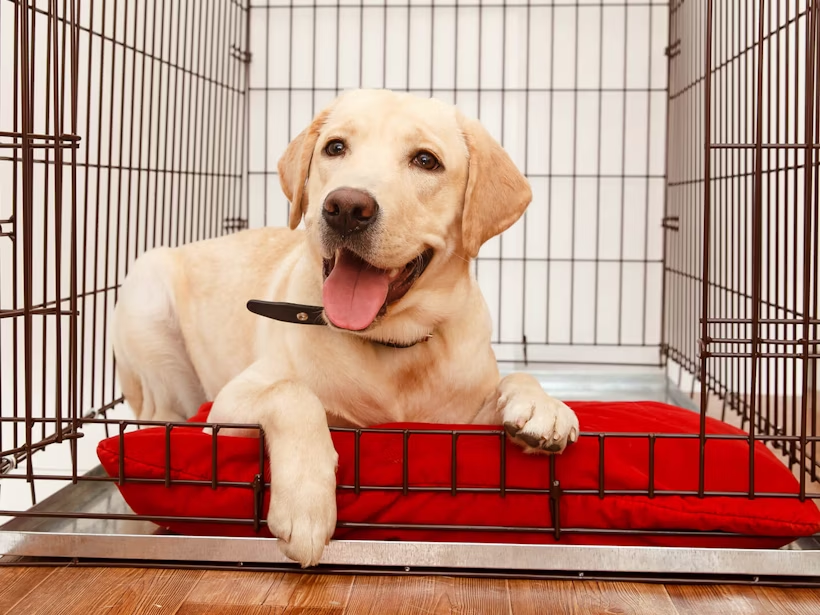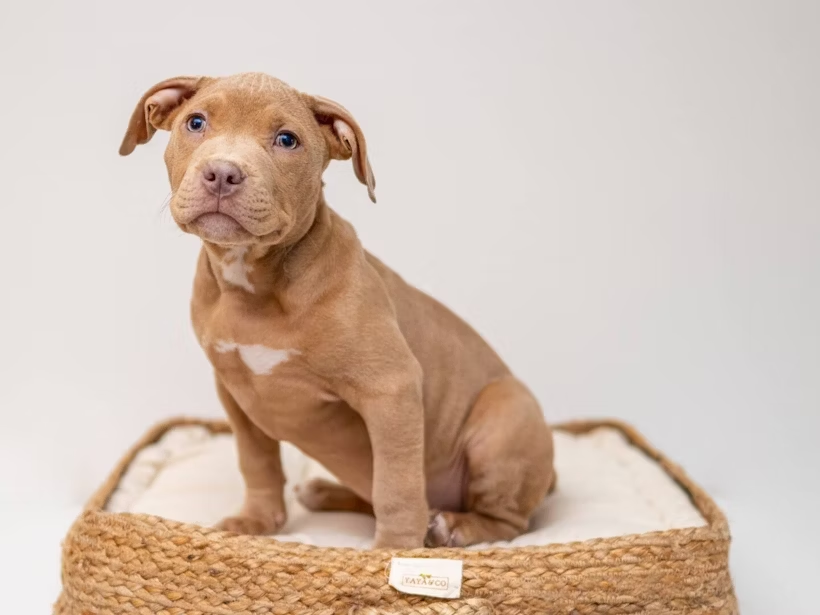Like many parents this time of year, we’ve got “back-to-school” on the brain. But we’re not talking about grammar and long division. We’re referring to puppy training classes.
If you’ve just added a cute little canine to your pack, read on to find out what you need to know about puppy kindergarten.
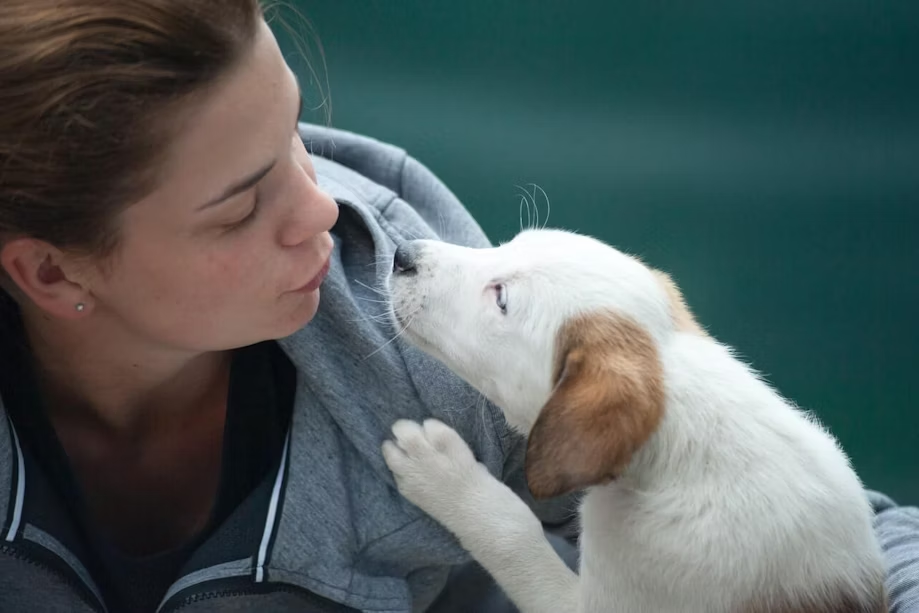
What is puppy school?
You might think puppy training classes are just for young dogs—meant to teach them how to behave. But the lessons are as much for the pet parents as they are for the pets.
That’s right: though it’s called “puppy school,” you’ll do a lot of learning, too. Specifically, you’ll discover how to motivate and communicate with your new fur child more effectively.
Your puppy kindergarten crew may consist of as few as four or as many as eight other dogs. (Classes may currently be smaller due to COVID-19.) We recommend avoiding groups larger than that. Without multiple trainers, double digits of doggos can make lessons chaotic and unproductive.
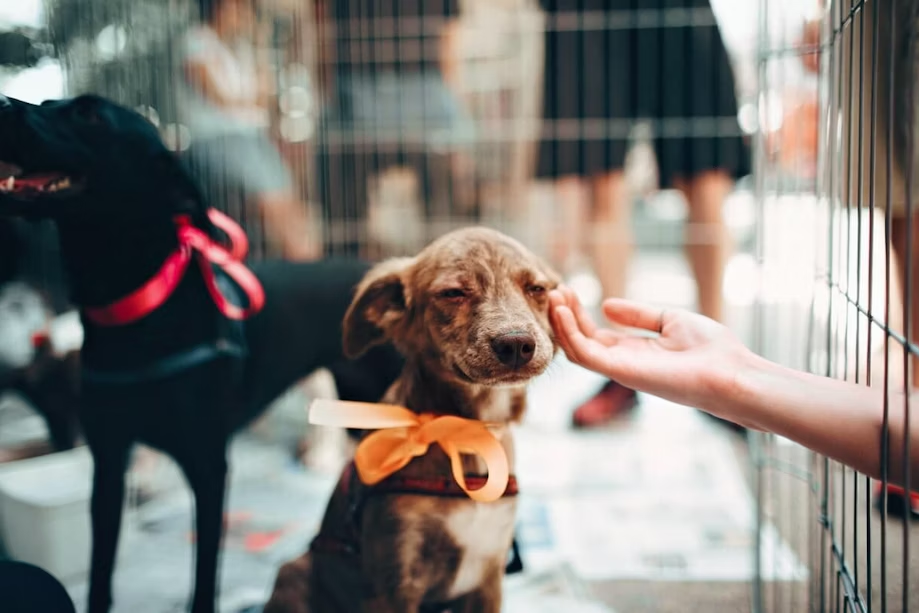
What will my dog learn at puppy kindergarten?
Most puppy training classes aim to teach basic obedience commands (e.g., “sit,” “down,” “stay,” “come,” “leave it”). They sometimes also address common challenges, such as housebreaking and walking on a leash. And if you’ve enrolled in a top-notch class, it may cover how to curb undesirable behaviors—including chewing, biting, whining, and digging.
But most importantly, puppy school provides socialization.
Socialization is the process of introducing your dog to a wide variety of people, places, animals, objects, and experiences. The goal? To help them become more confident and predictable in a range of situations. Under-socialized dogs may be fearful of or reactive toward seemingly random things—such as people in hats or elevators. As a result, they’re often generally harder to live with.
Recommended reading: When and How to Socialize Your Puppy »
Puppy school offers a myriad of opportunities for socialization:
- Your pup gets to meet other pet parents, exposing them to different types of people.
- Supervised playtime teaches your pup to interact with other dogs appropriately.
- Most classes involve handling (e.g., touching paws, tails, and ears), preparing your dog for grooming and other care.
- Some classes even introduce novel, potentially scary objects—such as vacuum cleaners or wheelchairs—to help your dog form positive associations.

When should you start puppy training classes?
To help your puppy grow into a well-adjusted adult dog, we recommend starting puppy school when they’re as young as eight weeks. Why so early? Because puppies are most receptive to new experiences when they’re under three months old. So, the ideal time frame for socialization is rather short!
You’ll want your dog to have their first round of distemper and parvovirus vaccines. But waiting until your pup receives all their vaccinations before starting is not necessary. In fact, the risks of under-socialization arguably outweigh those of not being fully vaccinated. After all, dogs that lack proper socialization are more likely to develop behavioral problems that land them in a shelter (or worse).
Note: When it comes to making decisions about your dog’s health, always consult your veterinarian.
If you’re worried about safety, look for a training class that requires proof of the first set of vaccinations and follows strict cleaning practices (e.g., sanitizing floors before sessions).

How long does puppy school last?
Most puppy school programs run for one to two months and consist of weekly, hour-long classes. Of course, that doesn’t include the many hours of “homework” you should put in between lessons!
So, you’ll ultimately spend about eight hours, at most, with the instructor. As such, don’t expect your pup to graduate perfectly trained. (Since puppy classes are typically full of distractions, they’re actually not the best place to learn.) Instead, your goal should be to leave with a solid foundation to build upon at home.
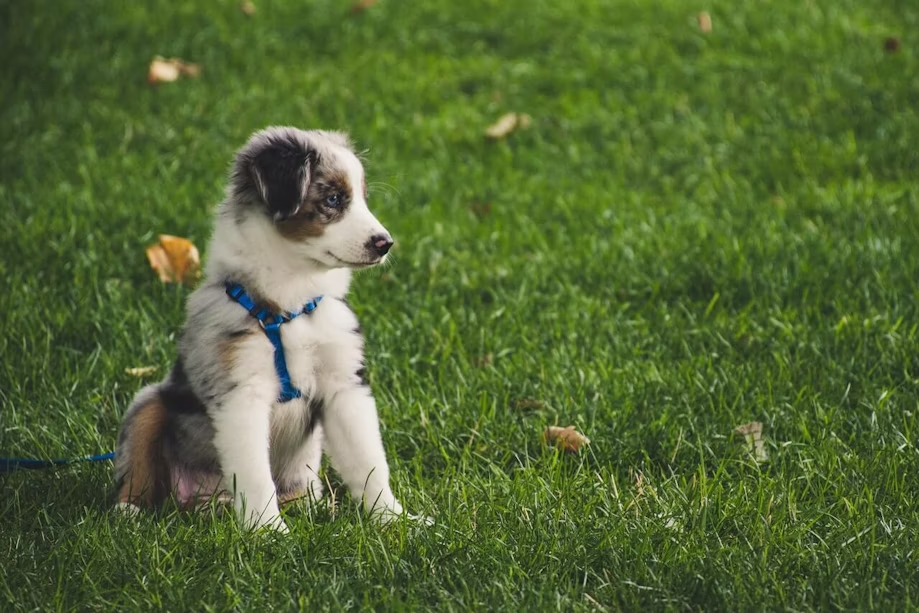
How much do puppy training classes cost?
The price of puppy school depends on which program you choose and where you live. But you can expect an enrollment fee in the range of $100–$150.
That might seem like a lot. But it’s quite affordable compared to a private trainer, who might charge that much per session. (And in such a case, you don’t even get the added benefits of socialization.)

Are puppy training classes worth it?
Puppy school offers many benefits you won’t get from merely watching training videos or reading articles online.
For example, instructors provide real-time feedback on how you can improve your training approach, preventing you from making rookie mistakes that slow you down. The other pet parents—who are going through the same adorable but, let’s be honest, sometimes frustrating experience you are—serve as a kind of psychological support group. And your pup receives proper socialization in a safe, controlled space.
So, we believe, if you have the right expectations, puppy kindergarten is a worthwhile investment. But when it comes down to it, the success of a program largely depends on the two following factors.
1. You need a good instructor.
You should seek out a reputable puppy school with experienced dog trainers. Your veterinarian, friends, or neighbors may have local trainers they recommend. Otherwise, we suggest searching online for puppy classes with lots of favorable reviews and ratings.
Once you’ve narrowed down the list of options, consider chatting with previous clients about their experiences. You can also ask for a preview—a chance to sit in on a training session to get a feel for it.
2. You’ve got to put in the work.
As mentioned at the start of this article, the real value of puppy school is socialization for your dog and education for you. But if you don’t consistently apply what you learn at home, you shouldn’t expect transformative results.
And remember, training never ends—even if you pick the best puppy school out there. As your pup grows, keep things interesting by introducing new teaching techniques that play to their genetic strengths and preferences.
How much do you know about your new pup?
Wisdom Panel™ dog DNA tests uncover ancestry, traits, and actionable health insights—helping ensure a happier, healthier, snugglier pup for years (and years) to come.
Discover Benefits
